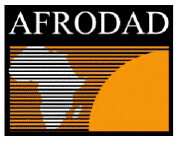NKOMBO KACHEMBA
Lusaka
THE African Forum and Network on Debt and Development (AFRODAD) has raised alarm over the continent’s escalating debt burden, revealing that African countries paid out a staggering US$163 million in interest on debt service in 2024 alone, largely due to high interest rates on borrowing.
Speaking at the official opening of the 2025 National African Conference on Debt and Development (AfCoDD) in Lusaka, AFRODAD policy analyst and advocacy officer for sovereign debt management, Catherine Mithia, said Africa’s debt situation has worsened over the past decade, with interest payments rising faster than in any other region.
“Africa is the only region in the world where debt is growing faster than its GDP,” Ms Mithia said.
“This reflects deep-seated injustices in the global financial architecture, which continue to trap African countries in cycles of debt and dependency.”
Africa’s total debt stock stood at US$1.8 trillion in 2023, with nine countries currently in debt distress and 11 more at high risk of distress.
Ms Mithia noted that many African countries have debt-to-GDP ratios exceeding 60 percent, with most ranging between 25 and 46 percent from 2013 to 2023. She cited the rising cost of borrowing and restrictive debt restructuring frameworks as among the key injustices African nations face.
According to Ms Mithia, debt restructuring processes are often dominated by stringent conditionalities that leave African countries with limited negotiating power.
She emphasised that the theme of this year’s AfCoDD, “Reparatory justice: Reforming economic systems for sustained and inclusive growth in Zambia”, underscores the urgent need to transform not only national fiscal policies but also global systems that perpetuate inequality.
She called for solidarity among African nations in demanding a fairer financial system, one that prioritises inclusive growth, supports economic sovereignty and enables sustainable development.
And the Civil Society Organisations (CSO) Debt Alliance has called for bold economic reforms and greater accountability in Zambia’s debt management, warning that the country’s economic future depends on urgent action to address long-standing injustices and policy missteps.
Alliance chairperson Daniel Mutale said Zambia’s current economic and debt challenges cannot be treated in isolation from the historical injustices and global financial structures that have disadvantaged the country for decades.
Father Mutale said Zambia’s public and publicly guaranteed debt stood at US$25.03 billion at the end of 2024, equivalent to 97.24 percent of GDP.
While this figure marks a nominal reduction from US$31.2 billion in 2023, the worsening debt-to-GDP ratio reflects declining national income and rising economic vulnerability.
He cautioned that increased domestic borrowing, which has surged by 76.5 percent since 2020, was crowding out private sector investment and undermining economic recovery efforts.
He pointed to the narrow tax base, poor tax administration, and the loopholes that allow wealth to escape untaxed as key drivers of Zambia’s fiscal weakness.
Fr Mutale described the CSO Debt Alliance as a vital bridge between citizens and the State, working to demystify debt issues, promote public awareness, and hold leaders to account.


